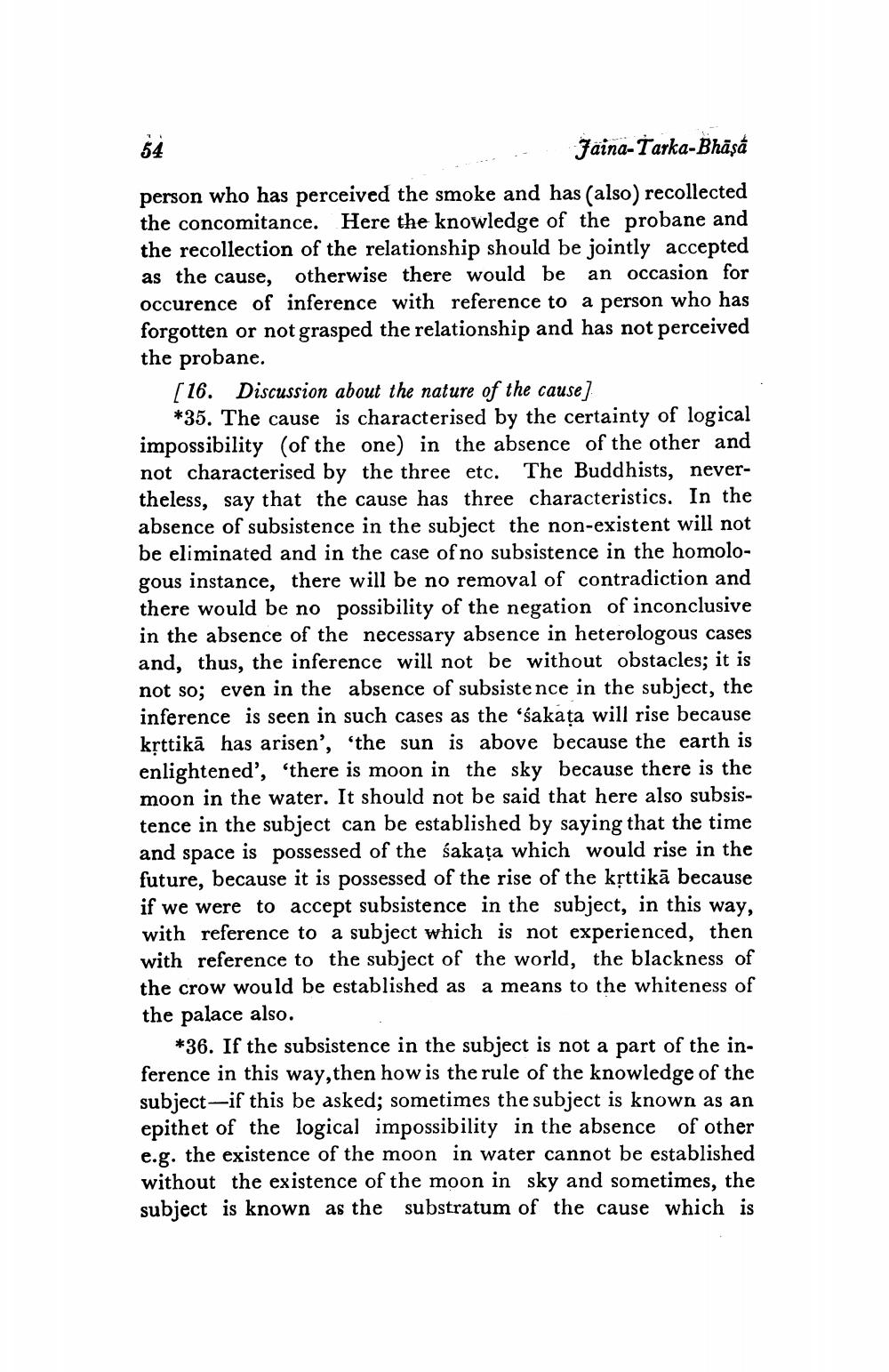________________
Jaina-Tarka-Bhāṣā
person who has perceived the smoke and has (also) recollected the concomitance. Here the knowledge of the probane and the recollection of the relationship should be jointly accepted as the cause, otherwise there would be an occasion for occurence of inference with reference to a person who has forgotten or not grasped the relationship and has not perceived the probane.
54
[16. Discussion about the nature of the cause]
*35. The cause is characterised by the certainty of logical impossibility (of the one) in the absence of the other and not characterised by the three etc. The Buddhists, nevertheless, say that the cause has three characteristics. In the absence of subsistence in the subject the non-existent will not be eliminated and in the case of no subsistence in the homologous instance, there will be no removal of contradiction and there would be no possibility of the negation of inconclusive in the absence of the necessary absence in heterologous cases and, thus, the inference will not be without obstacles; it is not so; even in the absence of subsistence in the subject, the inference is seen in such cases as the 'sakata will rise because kṛttikā has arisen', 'the sun is above because the earth is enlightened', 'there is moon in the sky because there is the moon in the water. It should not be said that here also subsistence in the subject can be established by saying that the time and space is possessed of the śakata which would rise in the future, because it is possessed of the rise of the kṛttikā because if we were to accept subsistence in the subject, in this way, with reference to a subject which is not experienced, then with reference to the subject of the world, the blackness of the crow would be established as a means to the whiteness of the palace also.
*36. If the subsistence in the subject is not a part of the inference in this way, then how is the rule of the knowledge of the subject-if this be asked; sometimes the subject is known as an epithet of the logical impossibility in the absence of other e.g. the existence of the moon in water cannot be established without the existence of the moon in sky and sometimes, the subject is known as the substratum of the cause which is




